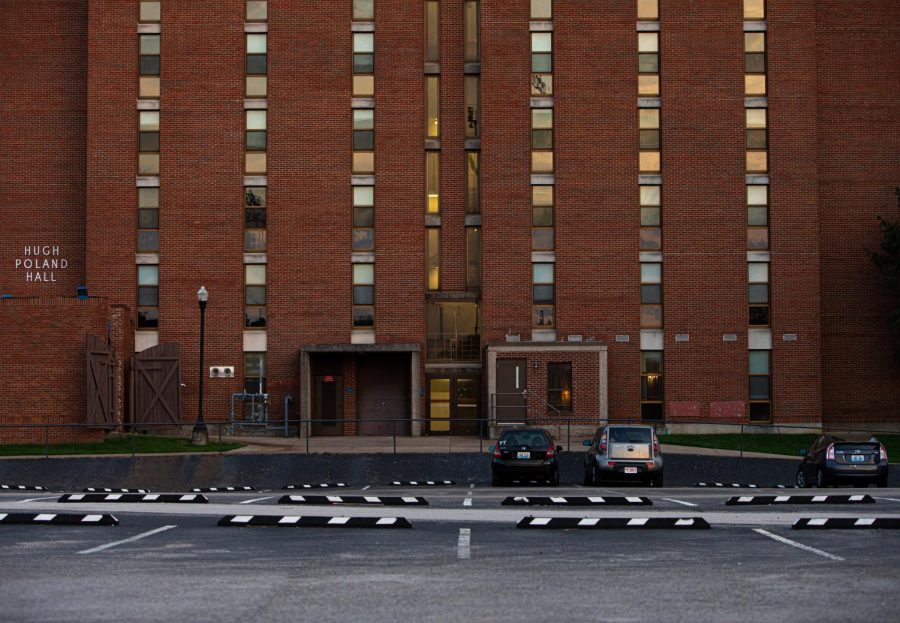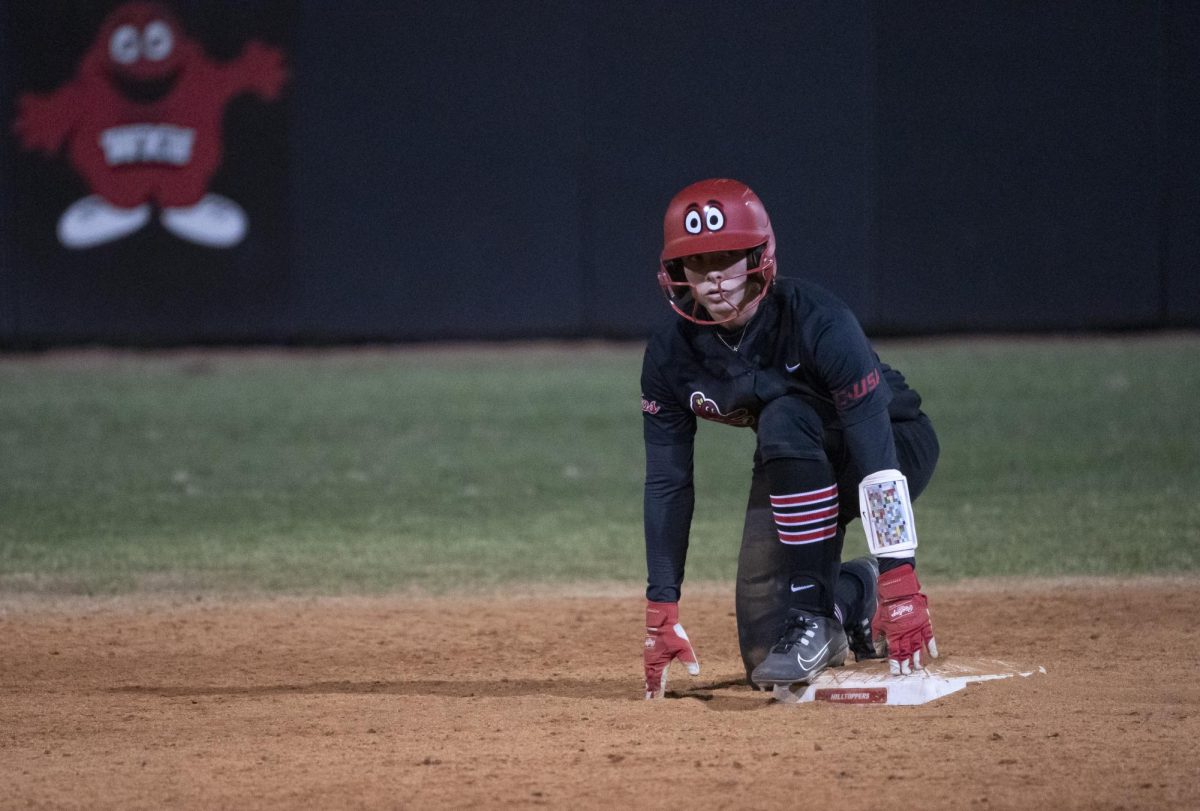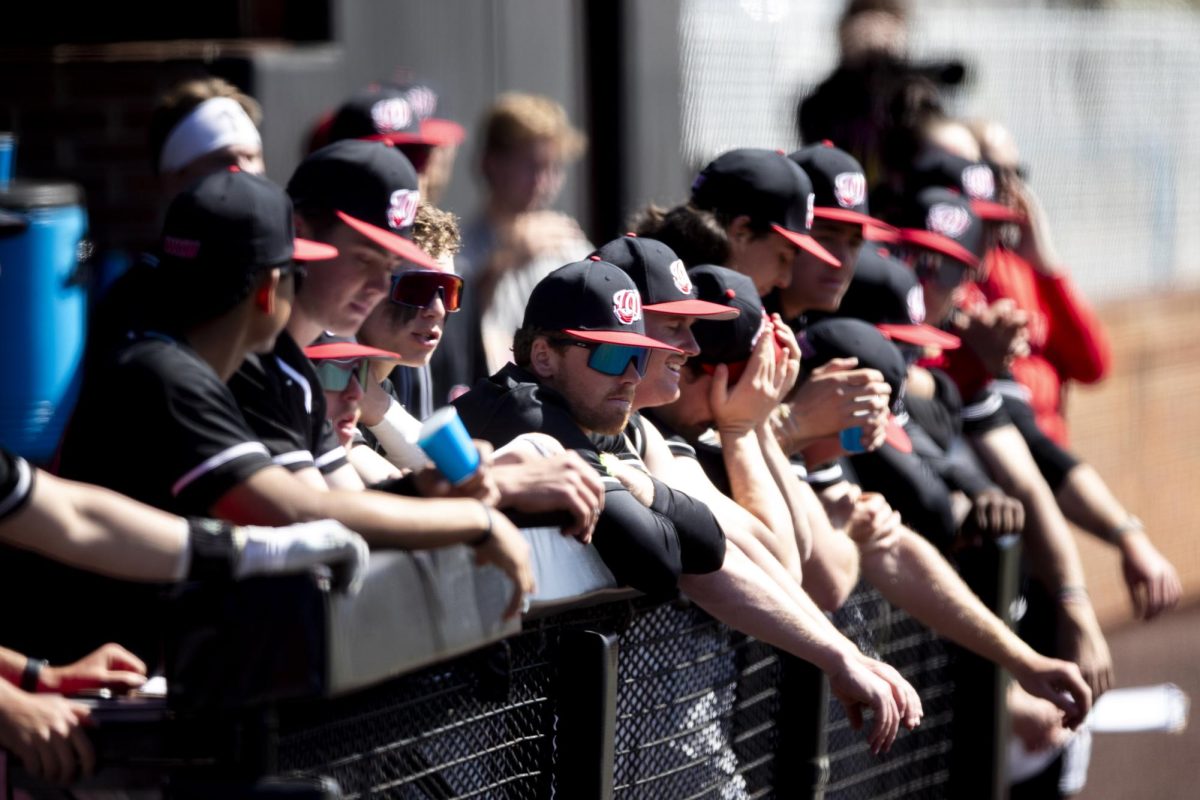‘It’s a struggle’: Student workers look for new normal while temporarily unemployed
May 8, 2020
This story was published in the May 8 final print issue. Read the full issue here.
As businesses are shutting down and unemployment rates are skyrocketing, some WKU students are feeling the heat from missed paychecks and struggling to adjust to their new lifestyles.
On March 16, Gov. Andy Beshear ordered all restaurants, cafes and bars to close or move to a carry out and drive-thru format only. The order went into effect hours later. While many businesses have found creative ways to stay open and serve the public through takeout and delivery, many servers were laid off.
About 70% of college students also hold a job, according to a 2018 report from Georgetown University. These students working at a restaurant, boutique or on-campus job must juggle the cost of attending college, an apartment or dorm, student fees and other living costs.
On the day Beshear ordered businesses to close, Logan Eaton, a senior criminology major, was scheduled to serve at Rafferty’s. When he saw the news, he said he called in and was told not to come in for his shift.
Shortly after the announcement, Eaton was laid off by the restaurant with no clear indication of when he would be back to work. He said Rafferty’s told him to continue watching the news and monitoring the situation and when everything “clears up,” they would make further decisions.
“Obviously there’s no indication when that’s going to happen as of now,” Eaton said. “It’s really just put me in a tough spot as far as handling all the basic things that I need to do on a day-to-day basis, you know. It’s — it’s a struggle.”
While the shutdown and lay-off was a shock at first, Eaton said he anticipated the move based on the type of business Rafferty’s was experiencing.
Before the shutdown, Eaton said there was a noticeable decrease in sales and customers. On a Friday, which is typically a packed night, he said very few customers were coming in.
While going through the shock of losing his job, Eaton said he initially found hope in the Coronavirus Aid, Relief and Economic Security Act.
On March 25, the U.S. Senate passed the $2 trillion CARES Act. Through one part of the bill individuals can receive a one-time amount based on their tax filings and annual salary. An individual making less than $75,000 would receive $1,200. Married couples with children would both receive checks and an additional $500 per child. For individuals making more than $75,000, the one-time amount decreases.
Many college students, including Eaton, were surprised to find out they were not eligible to receive checks if claimed as a dependent on their parents’ taxes. He said he lost a lot of hope for financial security after hearing that news.
“I’m just hoping that everything comes back to normal here soon because I could really use it,” Eaton said.
Since being laid off, like millions of others, Eaton has filed for unemployment. He lives in an apartment in Bowling Green and pays for it without family support. After being laid off, he said he’s lost the income to pay for his apartment and way of life.
Also included in the CARES Act is increased support for unemployment benefits. The bill would add $600 to the weekly unemployment benefits.
Specifically in Kentucky, Beshear has taken action to make unemployment benefits more accessible. This includes:
- Waiving the seven-day waiting period to receive insurance benefits and work search requirements while the state of emergency is in effect
- Raising the weekly benefits by $600 and the number of weeks a person can receive benefits to 39 weeks
- Allowing independent contractors, substitute teachers, small business owners, gig economy workers, childcare workers from churches, cosmetologists or anyone who lost their job due to quarantine or paid leave to qualify.
Eaton described filing for unemployment as a relatively seamless process. Like many other Kentuckians, his primary issue was with the state website, where you file for unemployment benefits, crashing because so many people were attempting to file at once. Even with logging on to the site three or four times a day, he said it took him two or three days to file.
After Beshear ordered many businesses to close, the number of Kentuckians filing for unemployment soared, causing backups within the system.
After initially filing, Eaton said things with the unemployment system have smoothed out. He said he has to go back to the website weekly to request the payment, but it’s an easy process.
Sidney Dickhaus, a junior social work major, was laid off from her serving job at Cracker Barrel about three weeks ago.
Luckily, Dickhaus said since Cracker Barrel is offering retention pay which is a percentage of what a worker would normally make depending on how long they have worked there. Dickhaus is making about 40% of her normal income through this system.
Recently, Dickhaus said she filed for unemployment, something she never anticipated doing at her age. She said the process was a bit confusing because there are a lot of questions she felt did not apply due to the circumstances.
“It just feels like the circumstances aren’t really as serious, they just haven’t really set in,” Dickhaus said. “It’s just kind of surreal overall what’s going on.”
For the next few months Dickhaus said she has enough money saved up to pay rent on her duplex apartment. Her landlord has also reached out and been flexible about rent. However, as businesses remain shut, Dickhaus said her financial stability could change and it’s difficult not knowing how long this situation will last.
Settling into a new normal
The transition from working about 30 hours a week and taking a 15 hour course load to everything nearly grinding to a halt has taken a toll on Eaton mentally. He said he’s used to putting forth a lot of work and effort to classes and his job, but now there are less responsibilities to keep up with.
“I was busy every single day all day long, and it’s going from that work style to doing absolutely nothing,” Eaton said. “I feel like my work ethic and everything’s kind of dwindled because of that.”
Now over a month into the pandemic, there is no clear answer on when restaurants and businesses will be able to reopen.
The uncertainty may hit graduating seniors like Eaton more intensely. While he believes the restaurant industry will be able to bounce back because there will always be a demand for food and going out to eat, for him this period is a stressful waiting game. In the fall, he is planning to move to Lexington to find a new job.
Depending on how long he remains unemployed and the stay-at-home period is drawn out, he is nervous he won’t have enough money saved up to adequately move.
“It just kind of left me speechless because I’m now struggling to figure out what to do,” Eaton said.
Despite the challenges, Eaton said he’s been able to rely on his parents and has a support system to help figure out his future and to cope with his current situation.
Additionally, Rafferty’s has still found ways to help its employees by giving them a free meal everyday if they come in. To Eaton, he said it shows a dedication to employees and a willingness to work with them during an unconventional time.
After WKU moved to online classes, Dickhaus said not working has been helping because the transition to online work has been overwhelming and hard to keep up with. By not working, she said she has more time to catch up and focus on school work.
While she is frustrated by the move to online classes and the fact she is out of a job, Dickhaus said she understands why these steps were taken.
“I try to keep that in the back of my head when I do, you know, get frustrated about these things and just be more thankful again that we’re doing what we need to do rather than upset about — that I can’t do these things,” Dickhaus said.
A closed campus
On-campus services have also been shut down or adjusted. All residence halls aside from Hilltopper Hall have been closed and the only remaining dining options are Hilltopper Hub and Subway for limited carry-out hours.
Bob Skipper, director of Media Relations, said students on a work study program or students who met financial aid criteria on their FAFSA should continue to be paid, while those employed in Housing and Residence Life and Dining not actively working will not.
On March 31, faculty were notified in an email from acting Provost Cheryl Stevens that a recent change to federal regulations would allow the university to pay students even if they are not working on “typical assignments,” if the employees supervising student workers want to keep students on the payroll. If a student cannot complete their typical work from home, WKU suggested assigning them to help with a postcard writing campaign and “virtual mentoring initiative” to interact with students.
Stevens clarified WKU had spent annual federal allocations, so student pay moving forward would be covered by “institutional unit budgets” or individual departments. Therefore, college deans or senior divisional leaders would determine if a student should continue on payroll.
When considering the financial burdens many students may have because of unemployment, Skipper said he did not know of anything WKU could directly do. However, WKU is releasing financial holds like parking tickets so students can register for the next term. Students will still need to pay off the holds, but it will not impact their registration process.
Senior Kayla Shepperson has worked in housing almost through the entirety of her college career as a desk assistant, Resident Assistant and a Senior Administrative Resident Assistant. In the past month, she said there have been a lot of changes to her life.
Just as all students were told to move out of their dorms, Shepperson had to move all her things to her home in Nashville with the same notice. She said those working in housing were told not to help with close down procedures and just needed to get their stuff and leave campus, just like all their residents.
Now without a job or source of income, Shepperson said she’s under a lot of stress. Currently she is trying to look for another job in Nashville and is hoping to get a position at an Amazon fulfilment center.
Given the concerns about social distancing and spreading the coronavirus, Shepperson said she is concerned about potentially being exposed at work. At the same time, she said she is a very conscientious person and will take necessary steps to keep herself protected.
“Of course this is a really big issue,” Shepperson said. “But with the positions I’m looking at I don’t see it affecting it as much because there’s not as much close contact with other people.”
On March 27 in his daily update, Beshear urged Kentuckians not to travel to Tennessee because the state was not taking the same prevention measures, such as closing businesses and schools. Later, on April 2, Beshear issued an executive order which required a 14-day quarantine of anyone coming from out of the state.
As of May 7, Tennessee reported 13,690 cases while Kentucky reported 5,822, according to the Centers for Disease Control and Prevention.
Shepperson said she knew Nashville has had a lot of confirmed coronavirus cases and this was definitely a concern for her, but there wasn’t anything else she could do. She said it’s also difficult knowing that even if she left something in Bowling Green or if a friend needed her help in Kentucky, she is not supposed to come back without quarantining for two weeks.
While she’s been looking for jobs, Shepperson said she’s had more time to focus on classes which has helped with the transition. However, she has concerns about balancing work and school with a different job.
“With housing I set my own schedule and everything like that, and I knew I had a set schedule each week,” Shepperson said. “Now I’m not really looking at a set schedule like that. It’s more so I’m getting a schedule and deciding whether I can miss class based on that schedule or not.”
Weeks after initially filing for unemployment, Eaton said he still had not received any unemployment check. On April 30, he said he had been told to expect his first check on April 26.
Luckily, he said Rafferty’s has since implemented a system where impacted employees receive a weekly check based on the average of their previous pay. For him, this totals to about $400, which he said definitely helps his financial situation, but he said he hopes for more speed from the unemployment system.
Now, he said he’s had to put moving to Lexington after graduation almost to the backburner so he can focus on paying his current rent. He said he’s also struggling to afford weekly groceries and other living expenses.
“Having that extra money would really make those financial decisions that you have to make a lot easier,” Eaton said. “It’s not like you have to sit there and dread on it like I’m currently doing.”
While Beshear has announced phases to reopen the economy, there is no set date when restaurants will be able to return to normal.
“Is the risk worth more than the reward?” Eaton said. “Is going back to work and just getting by worth I guess exposing more people to this virus? It’s one of those questions that’s hard to answer.”
Editor-in-Chief Rebekah Alvey can be reached at rebekah.alvey660@topper.wku.edu. Follow her on Twitter at @bekah_alvey.















